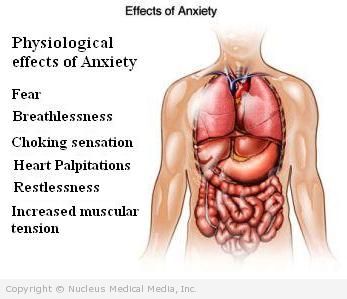Social anxiety disorder
(Social Phobia)
Social anxiety disorder – Definition
Social anxiety disorder is the intense fear of social situations. People with social anxiety disorder:
- Avoid interactions with other people
- Are extremely afraid of being judged negatively by others
- Feel humiliated, embarrassed, and inadequate more easily than others
Social anxiety may be:
- Generalized to all social interactions
- Specific to certain social situations, such as public speaking
Social anxiety disorder is much more severe than shyness. It can interfere with work, school, or other situations, as well as cause physical symptoms.
Social anxiety disorder – Causes
The exact cause is unknown. Possible causes include:
- Genetic factors
- Problems with the regulation of chemicals in the brain
- Past emotional trauma in social situations
Social anxiety disorder – Risk Factors
Factors that increase your chance for social anxiety disorder include:
- Age: adolescence and early adulthood
- Other psychiatric disorders (such as anxiety disorder, bipolar disorder, depression, or drug abuse)
Social anxiety disorder – Symptoms
Symptoms during social interactions may include:
- Blushing
- Excessive sweating
- Trembling
- Dry throat and mouth
- Muscle twitches
- Intense anxiety
- Rapid heart beat
- Lightheadness (feeling like you are going to faint)
Symptoms may begin in any public situation such as:
- Being teased or criticized
- Being the center of attention
- Meeting new people
- Interacting with authority figures
- Interacting with members of the opposite sex
- Eating, writing, or speaking in public
- Using public toilets
Social anxiety disorder – Diagnosis
Your doctor will ask about your fears and symptoms. A physical exam may be done. You may be referred to a mental health therapist. The therapist may do a psychiatric evaluation.
Social anxiety disorder – Treatment
Treatments include:
Cognitive-Behavioral Therapy
During cognitive-behavioral therapy, the therapist may:
- Help you change your negative thought patterns and behaviors
- Teach you techniques to help you control anxiety symptoms (eg, deep breathing, visualization, meditation)
- Suggest changes to your social environment to minimize stress
- Gradually expose you to feared situations in a controlled environment
A support group may also be part of your treatment.
Medication
Your doctor may recommend:
- Selective serotonin reuptake inhibitors (SSRIs) or other antidepressants—to help relieve symptoms of anxiety and depression
- Beta-blockers — to stop the physical symptoms of panic and anxiety (has been used to relieve the performance anxiety that often occurs with social anxiety disorder)
Your doctor may try using other medicines to help control your symptoms. Examples include:
- Benzodiazepines
- Anticonvulsants
Social anxiety disorder – Prevention
There are no guidelines for preventing social anxiety disorder. But early diagnosis and treatment can prevent complications, such as:
- Drug abuse
- Depression
- Difficulties at school, work, or in your personal life

